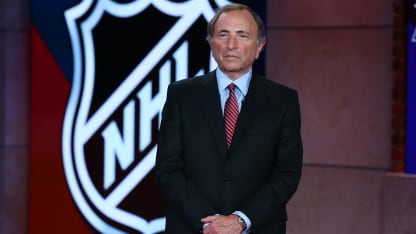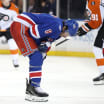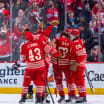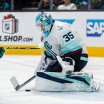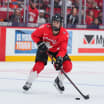While the COVID-19 pandemic tested our ability to navigate uncharted waters based on newly emerging and ever-changing information, leadership through times of social unrest has required a different skill set altogether -- one rooted in introspection, education, communication, intentionality and authenticity.
Today marks one year since George Floyd's murder, a tipping point for our society across issues of racism, social justice, representation and equality. In many ways, this tragedy acted as an accelerant within the sports world, pushing us to use our platforms and influence to stand for what is right.
The NHL's history of tackling these issues, perhaps at times, appeared awkward and uncomfortable. But we are evolving -- as individuals, as an organization and as a sport -- trying to lead and become part of the solution to challenges that permeate our society, affect hockey's culture and directly impact our business, employees, players and fans. Our Players and team and League personnel no longer desire to 'shut up and play hockey' -- they do not accept the status quo as the best we can offer to all those who love this game -- especially those who have not felt fully welcomed in the past.
We believe that our contribution to this movement must start from within. Our aspiration to make hockey for everyone can only be achieved if we allow hockey culture to be created by everyone. Our greatest contributions in the future will not come through performative acts, but through substantive undertakings within leadership development, education, employment, marketing, partnerships, youth participation and community and civic engagement. We have developed new strategies, structures, councils and committees to evolve the way we do business in all these areas and we continue to engage, support and galvanize our most critical stakeholders.
Earlier this year, I and other members of the NHL's Executive team participated in a deep, introspective inclusion learning experience that is currently being rolled out to all NHL employees. This two-day experience was emotional, impactful, insightful and - most importantly - challenging. As Deputy Commissioner Bill Daly said, "What these discussions made clear to me is that as much as I would want each decision to be binary, they very seldom are. Doing the 'right' thing in promoting diversity and inclusion demands taking in, analyzing, processing and making sense of many (sometimes competing) considerations … I intend to be intentional in trying to be cognizant of my own limitations in fully understanding others' perspectives, so that I can factor those limitations into my decision making." I share his sentiments. On a personal level, the session was an opportunity to reflect on the factors that influence our lives and the ways we can all prioritize change going forward.
This includes changes in our sport. Throughout the hockey world, we desire deeper relationships with Black, Asian, Indigenous, Hispanic/Latino and all other communities of color -- as players, employees, fans, business partners and community leaders. As we build an inclusive culture that welcomes more underrepresented groups (including intersections of race, gender, sexuality, and disability), we acknowledge our own role in opening new levels of access, breaking down real and perceived barriers to entry, and being conscious about racial and social issues as we make authentic decisions.
Former NHL Player and current Toronto Maple Leafs executive Mark Fraser and Erik Gudbranson of the Nashville Predators recently sat down to reflect on what the past year has meant to them, what they learned about themselves and each other, and their aspirations for the future of our sport. I was particularly struck by how they discussed vulnerability as a strength. Our blind spots, fears and discomfort in these conversations can reveal opportunities for growth -- opportunities that leaders throughout the game are now more cognizant of than ever before. Like Mark and Erik, many other NHL Players have also embraced advocacy and allyship and have vocalized their expectation that this moment become a permanent movement. We hear their stories and feel their passion, and in some cases, their pain. I encourage you to watch the full conversation between Mark and Erik, which can be
